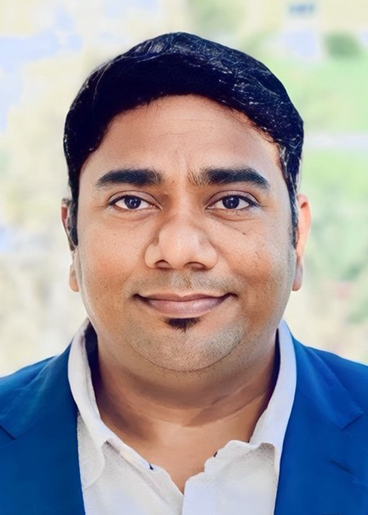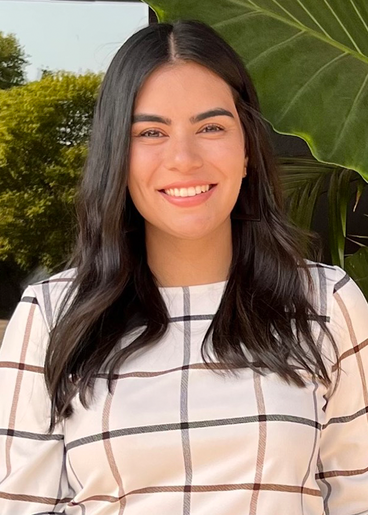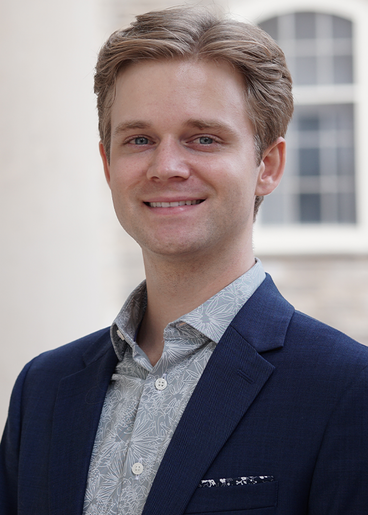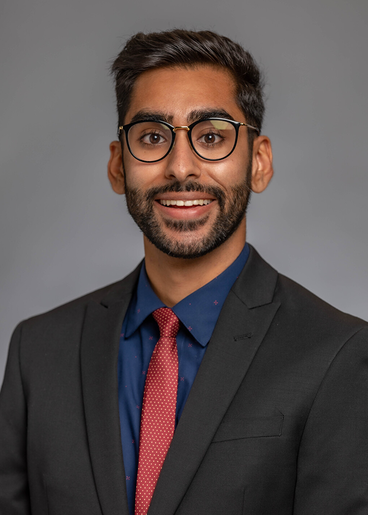Session Moderator: Sudesh Sivarasu, University of Cape Town, Medical School
Presentations in this session were chosen from the peer-reviewed contributed papers. The papers will be published in the 2024 Proceedings of the Design of Medical Devices Conference in the ASME Digital Collection.
Presentations are added as they are confirmed.
Validation of a Novel Mobile Flexible Hysteroscopy System through a Comparative Usability Trial

Sudesh Sivarasu, Ph.D
DSI - NRF South African Research (SARChI) Chair in Biomedical Engineering & Innovation
Professor & Director - Biomedical Engineering Research Centre (UCT - BMERC)
Head - UCT MedTech, Division of Biomedical Engineering, Department of Human Biology, University of Cape Town, Medical School
Professor Sudesh Sivarasu holds the DSI/NRF South African Research (SARCHi) Chair in Biomedical Engineering & Innovation and is the Director of UCT’s Biomedical Engineering Research Centre. He is a Professor in Biomedical Engineering at the University of Cape Town, Department of Human Biology. He is the creator of the innovative FrugalBiodesign™ methodology and has established award-winning labs, producing ground-breaking medical technologies. His research focuses on developing health technologies for low-resource settings, and he has supervised over 75 students in their post-graduate academic journey. Dr Sivarasu has an extensive patent portfolio with over 65 patent applications across various countries, and his innovation has led to the launch of three start-up companies from UCT's MedTech laboratories and several open-source innovations which are used across 16 continents. He was part of the South African National Ventilator Project, which led to the production of 20,000 ventilators during the COVID-19 pandemic. He is leading efforts on medical devices in the recently formed National Institute for Pandemic Preparedness and Prevention (NIP3). Dr. Sivarasu is an accomplished author with numerous peer-reviewed publications and has received numerous awards, including the UCT Deputy Vice-Chancellor’s Award for Innovation and 21 other awards in 4 different continents. Recently, he edited the textbook on ‘Medical Device Innovation for Africa’. He is an elected member of the Global Young Academy and the South African Young Academy of Science.
Pediatric 3D Head Scan Evaluation for Customized Respiratory Mask Development
The process of developing customizable non-invasive respiratory support masks for the pediatric population relies heavily on capturing 3D facial scans in dynamic pediatric intensive care unit (PICU) and neonatal intensive care unit (NICU) hospital environments. This research aimed to develop and test a method to evaluate the quality and usability of pediatric 3D head scans collected in a PICU. The goal of this research was to design a protocol to examine 3D scans and determine the feasibility of its use for NIV mask development, subsequently outlining the first stage for a customized NIV mask design strategy. The procedure consists of three distinct phases: model reconstruction and visual inspection, followed by a second phase to scrutinize specific facial areas, and a final third phase that involves landmark identification to assess the viability of the personalized support mask development from the 3D scan. This research presents one method to bridge the gap between the processes of two vastly different systems--product development and pediatric healthcare--to achieve a vision of customized respiratory mask solutions that blend seamlessly into the complex healthcare system. The results of this study present new perspectives on how to approach 3D scans of the pediatric population for the end purpose of developing customized devices. The method serves a dual purpose: one, to identify areas in the scan that require improvement retrospectively, and two, to prospectively devise strategies for transforming these scans into personalized mask designs.

Vanessa Segura Duque
University of Minnesota
Vanessa Segura Duque is a Fulbright Scholar currently pursuing a Ph.D. in Human Factors and Ergonomics at the University of Minnesota. As a lead graduate researcher in the Human Dimensioning Lab (HDL), Vanessa's research involves translating 3D body data and 3D technologies into products for medical and work applications. Her research contributions in the HDL include interdisciplinary projects such as developing customized respiratory masks for pediatric patients, evaluating manufacturing workspace solutions for the hand in partnership with Toyota, and studying ergonomic glove shapes for firefighters. Previously, she was Partner and Director of R&D at ERGOFACTOS S.A.S in Bogotá, Colombia, leading the design and manufacture of ergonomics products for women in the floriculture sector. Vanessa holds a Master of Design and a Bachelor of Arts in Industrial Design from the National University of Colombia.
Compression Plating of Long Bone Fractures with Flexure-Based Compliant Locking Plates
A novel flexure-based compliant bone plate is proposed for long bone fracture compression. Locking screws can be used in all screw holes while compression is generated through pre-tensioning of flexible elements in the plate. Performance differences are characterized for the use of both titanium alloy and stainless steel in the proposed plate. Biomechanical simulations are performed with finite element analysis to determine the fracture surface compression characteristics. The proposed compliant plating technology may offer unique benefits of both locked and compression plating.

Connor Huxman
Connor has been designing orthopaedic devices in industry and academia for the last five years. This has included working as an R&D engineer at a start-up on the design and regulatory approval of spinal fusion implants, as well as academic research on the design of new devices for fracture fixation. He received his B.Sc. in Biomedical Engineering in 2020 from the University of Waterloo (Ontario, Canada), his M.S. in Engineering Design in 2022 from Penn State University, and is currently working towards his PhD in Mechanical Engineering at Penn State. Connor is passionate about the intersection of orthopaedic implant design, regulatory strategy, and surgeon adoption. He is currently developing a new technology for delivering controlled micromotion to long bone fractures with the goal of facilitating faster and stronger bone healing.
Designing Accessible VR Games to Assist Stroke Rehabilitation
VR games have become an important part of rehabilitation therapy for stroke survivors particularly to recover limb movements. The success of recovery is dependent on the repetitive movement of limbs over a considerable amount of time. It has been shown that VR game-based rehabilitation can offer promising results for repetitive movements as compared to conventional therapies. To improve the effectiveness of VR games it has been argued that – specifically designed games offer better stroke rehabilitation to keep patients engaged and motivated. This paper presents the development of non-immersive accessible VR games designed for upper limb movements without overloading patients. These games are designed based on the suggestions received from clinicians and physiotherapists. The games provide a non-immersive yet quite engaging environment with real-time scoring of performance.
Venketesh Dubey
Professor, Medical Robotics, Bournemouth University (UK)
Venketesh Dubey received his PhD from University of Southampton (UK) in Robotics. He held several positions of repute such as Research Fellow at King’s College London and Visiting Scholar to the University of Delaware (USA) and Associate Editor of ASME Journal of Medical Devices. He is the recipient of Global Research Award from the Royal Academy of Engineering and several innovation awards from the Institution of Engineering and Technology and NHS England. He was awarded the Hind Rattan Award from NRI Welfare Society of India for outstanding services, achievements and contributions to the chosen field.
Development and Evaluation of a Novel Flow Loop System for Interventional Training
Flow-loop systems are valuable tools due to their ability to mimic the intravascular environment. Here we propose a novel flow-loop system designed to train resident physicians in endovascular procedures with quantitative feedback in the form of size characterization of microemboli within the loop. The flow-loop incorporates a peristaltic pump to mimic physiological pulsatile flow with varying tube diameters to customize vascular resistance and custom housing for a pulsed-wave Doppler ultrasound probe. We conducted proof-of-concept studies using velocity-based, pulsed-wave Doppler ultrasound to correlate signal with particle size and found an inverse relationship between particle size and both displacement and average time per signal spike. These results suggest the ability to distinguish particles down to size 40 μm with sizes differing more than 300 μm. Future research will be focused on reducing data noise from Doppler Ultrasound probes, increasing data granularity, and testing carotid filters with the system. Envisioned for use in academic settings, this system will be a highly customizable tool for training resident physicians, allowing objective metrics for specific interventional procedures.

Divek Toprani
Texas A&M School of Engineering Medicine
Divek Toprani is an M.D. and M.Eng student at the Texas A&M University School of Engineering Medicine (ENMED). Divek has a background in biotechnology, with experiences ranging from device design to microfluidic systems. He is guided by a passion for impact-based translational research and innovation in medicine, patient care, and improving access to healthcare. In the future, Divek hopes to use his engineering background as a physician, using engineering innovation to positively impact the lives of his patients in multiple ways.